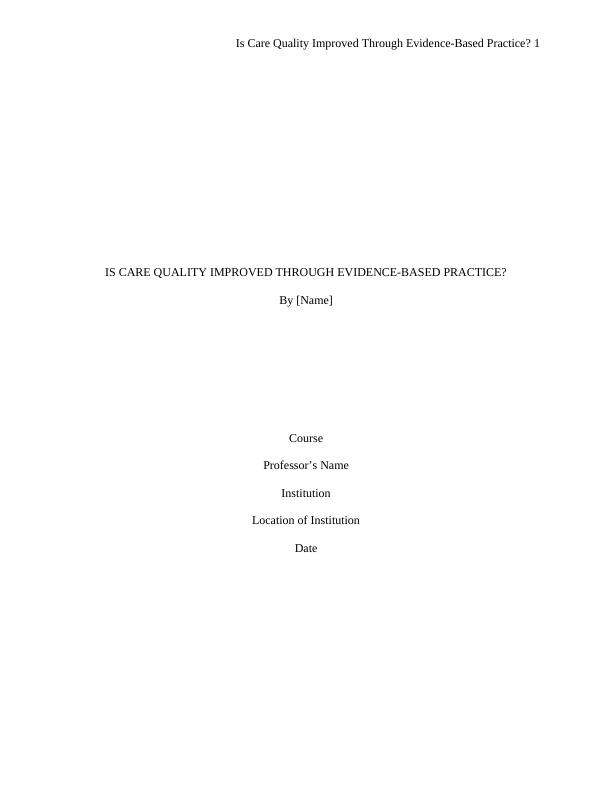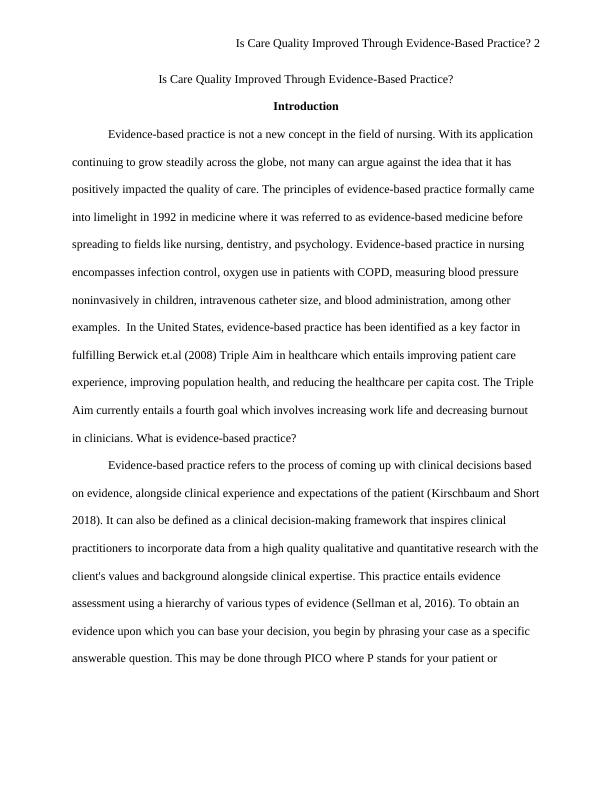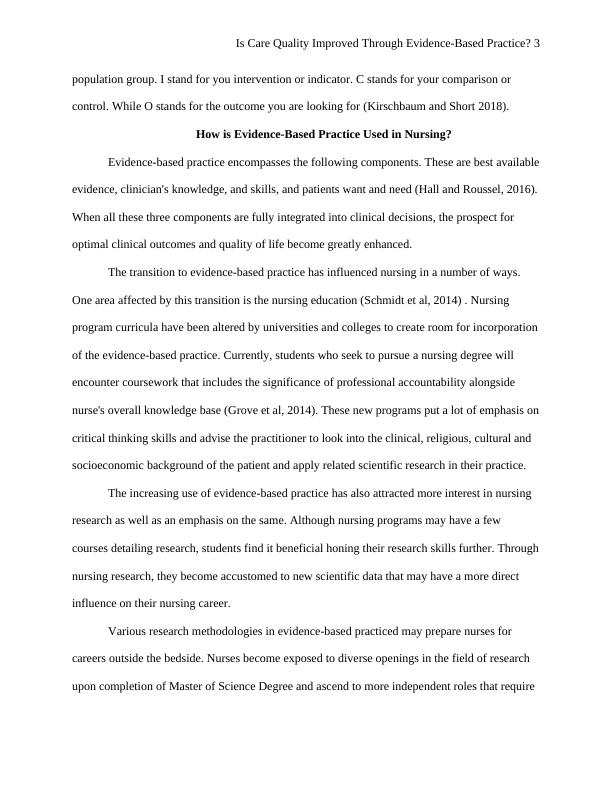Is Care Quality Improved Through Evidence-Based Practice?
10 Pages2853 Words168 Views
Added on 2023-06-13
About This Document
This article explores the impact of evidence-based practice on care quality in nursing. It discusses the benefits, barriers, and how it is used in nursing. The article also provides examples of evidence-based practice and how it has influenced nursing education and research. The subject is nursing, and the course code and college/university are not mentioned.
Is Care Quality Improved Through Evidence-Based Practice?
Added on 2023-06-13
ShareRelated Documents
End of preview
Want to access all the pages? Upload your documents or become a member.
Informing Practice with Evidence
|13
|2843
|86
Management of Substance Use Disorders (SUD) (2015)
|10
|2849
|76
Article | EVIDENCE-BASED PLAN FOR HEALTHCARE
|7
|1774
|46
Barriers to Implementation of Evidence-Based Practice in Clinical Areas
|11
|3036
|167
Role Of The Family Nurse Practitioner - Paper
|6
|1566
|392
Transitional Nursing Practice
|10
|2409
|470



